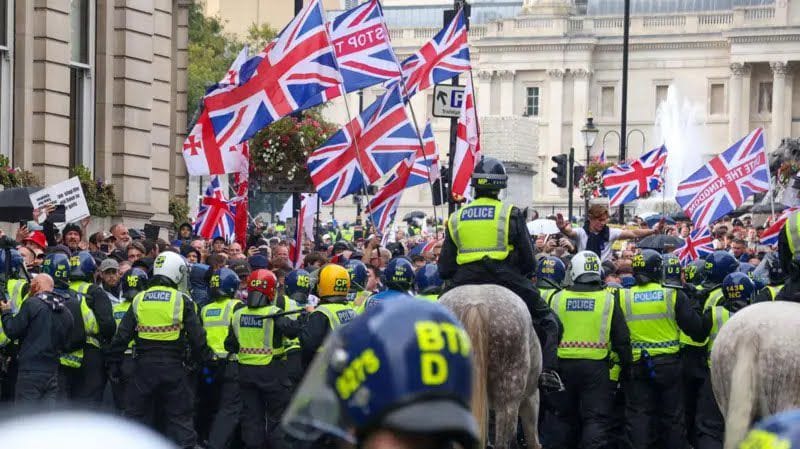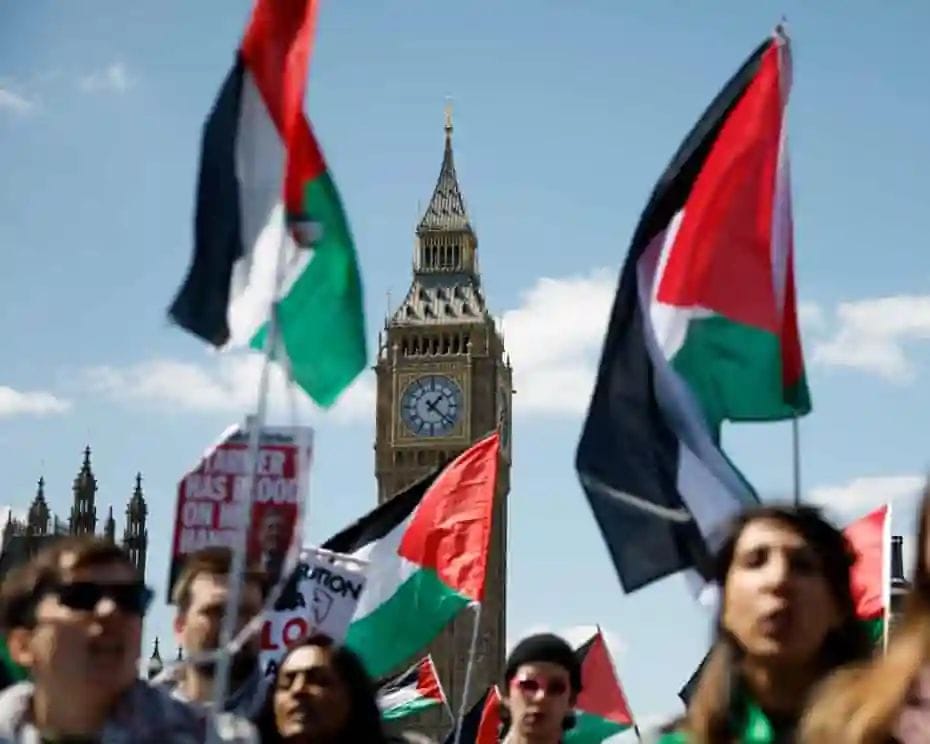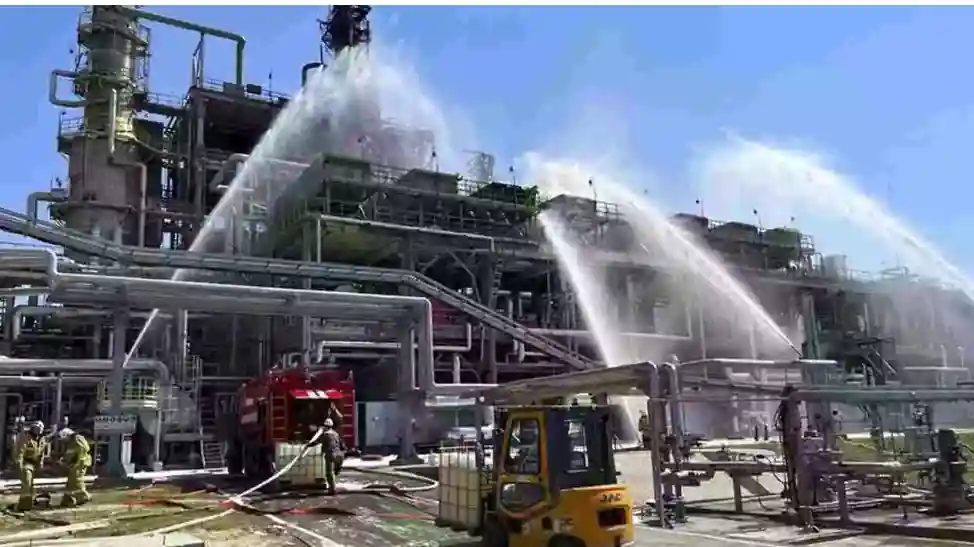The London anti-immigration protest drew over 100,000 participants, highlighting tensions over immigration, public safety, and the right to protest.
The London anti-immigration protest on Saturday saw over 100,000 people march through the city, reigniting debates about immigration, public safety, and democratic rights.
Organised by far-right activist Tommy Robinson, the demonstration attracted a mix of nationalist supporters and anti-immigration campaigners, many waving red and white English flags alongside the Union Jack.
One participant told reporters, “We are here to express our concerns about immigration peacefully. Violence is not our goal, but our voices need to be heard.”
Clashes with Police and Public Safety Concerns
Police reported that 26 officers were injured and at least 25 arrests were made, with further detentions expected.
Officers described facing assaults, including being kicked, punched, and hit with bottles and other projectiles.
The scale of the protest reportedly exceeded the approved march route, creating logistical challenges for law enforcement.

Prime Minister Keir Starmer emphasized the importance of lawful demonstration.
“People have a right to peaceful protest. It is core to our country’s values. But we will not tolerate assaults on police officers or intimidation of people on the basis of their background or skin color,” he said.
Immigration Emerges as Dominant Political Issue
The London anti-immigration protest occurs amid growing public concern over immigration, which has overtaken economic issues in political discourse.
The UK is facing a record number of asylum applications, with more than 28,000 migrants crossing the English Channel in small boats this year alone.
Analysts say that the protest reflects frustration over perceived gaps in immigration policy Britain has implemented.
“This march is not just about numbers; it’s about the way the system handles asylum seekers and border security,” said a political analyst.
Symbolism and National Identity
Many participants waved both English flags and the Union Jack, reflecting regional and national identity.
Prime Minister Starmer highlighted this symbolism, reminding citizens of Britain’s core values.
“Britain is a nation built on tolerance, diversity, and respect. Our flag represents our diverse country, and we will never surrender it to those who use it as a symbol of violence, fear, and division,” he said.
Public Reaction and Debate
The London anti-immigration protest sparked mixed reactions. Supporters argue that it represents a legitimate expression of concern about border security and immigration policy.

Critics warn that protests led by far-right figures risk spreading fear, legitimizing extremist views, and undermining social cohesion.
A bystander noted, “I understand people’s frustrations, but the aggression in parts of the crowd worries me. Protests should be peaceful, not violent.”
Balancing Rights and Responsibilities
The government and police face the challenge of balancing citizens’ right to peaceful protest with maintaining public safety.
Authorities have emphasized that anyone involved in assaults or unlawful behavior will be held accountable.
The London anti-immigration protest highlights the broader tension between democratic freedoms and social responsibility.
While it showcased strong public engagement on immigration issues, it also underscored the potential for political demonstrations to escalate into violence.
The Broader Context of Immigration in Britain
Immigration remains a central topic in UK politics, affecting housing, public services, and social cohesion.
The government is under pressure to manage the UK immigration crisis while upholding humanitarian obligations.
Large demonstrations, such as this protest, serve as both a reflection of public sentiment and a call for policymakers to address contentious issues thoughtfully.
The London anti-immigration protest demonstrated the intensity of public concern over immigration and border control.
While it emphasized the importance of the right to protest, it also highlighted risks associated with far-right activism and political polarization.
As Britain continues to grapple with the UK immigration crisis, balancing freedom of expression, public safety, and inclusive governance remains a delicate and urgent challenge.
The events in London serve as a reminder that democratic societies must navigate these tensions carefully, ensuring that civic engagement does not give way to intimidation or division.


